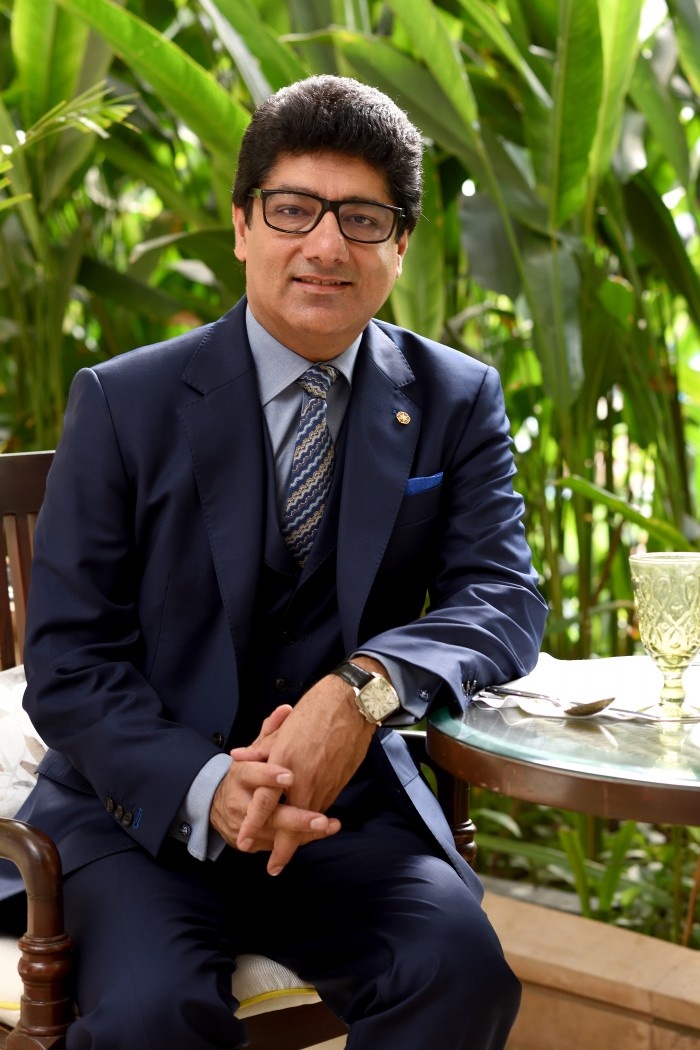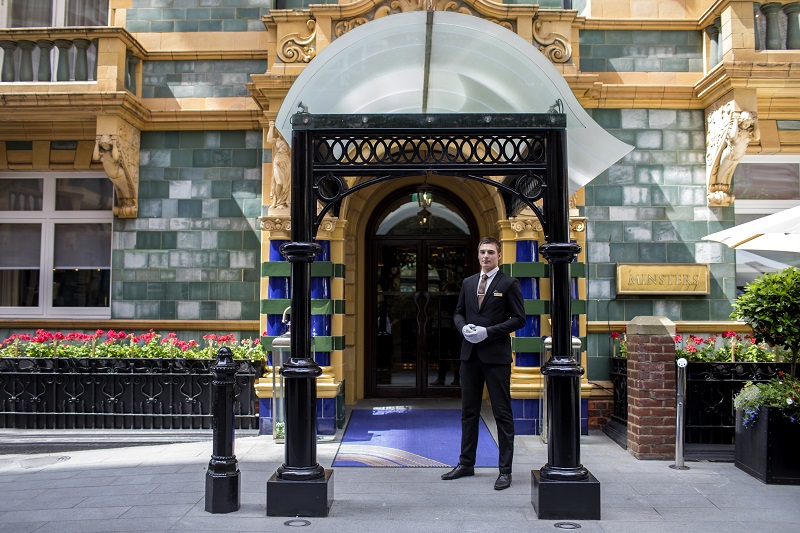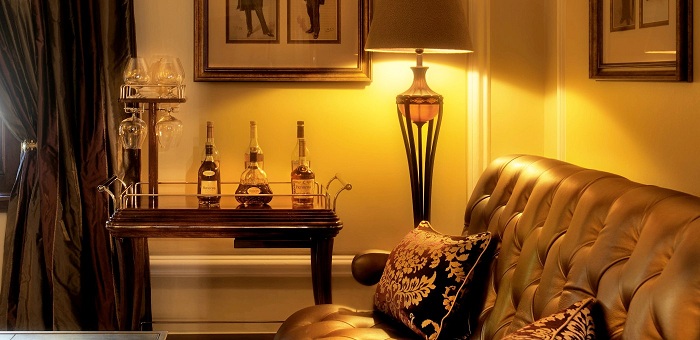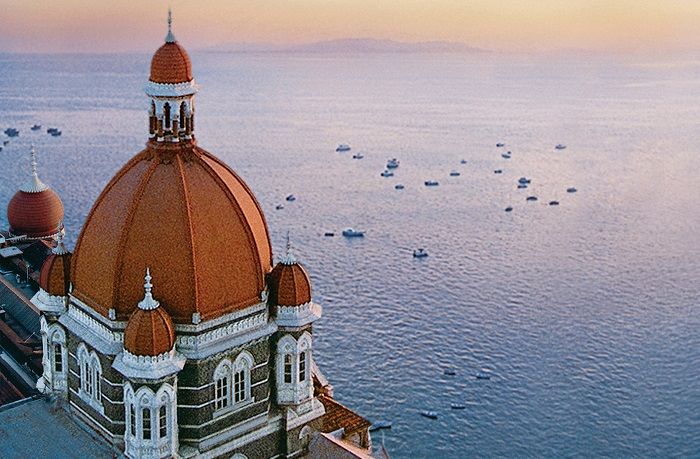
Breaking Travel News interview: Puneet Chhatwal, chief executive, Indian Hotel Company Limited
All change at Indian Hotels Company Limited.
Unveiling a new five-year strategy, Aspiration 2022, in February last year, the Tata Group-subsidiary outlined a plan to transform itself into the most profitable hospitality organisation on the subcontinent.
A little over a year and a half later, managing director and chief executive, Puneet Chhatwal is pleased with the progress so far.
Speaking to Breaking Travel News in London, he explains: “We have made a strong start on the journey, exceeding expectations.
“We finished last year with an EBITDA margin of 20 per cent, which demonstrated a 230-point increase.”
He adds: “We have been ahead of expectations in each of the past five quarters.
ADVERTISEMENT
“In the first quarter of this year we saw a margin of 15 per cent, which is 300 basis points higher than the same quarter last year.
“This was encouraging; it is the latter quarters of the year that generate 70 per cent of our EBITDA, so we are well on track.”
To date IHCL has been predominantly known for its Taj Hotels brand, a luxury portfolio offering Indian hospitality around the world. This is unlikely to change in the near future, but as it grows the company is seeking to expand into new segments and explore a growing number of markets.
The Ginger brand, for example, has been recalibrated and is now central to Aspiration 2022.
The brand has great potential to scale, with IHCL hoping to add a number of new properties in the next few years.
Overall, IHCL hopes to have 25,000 rooms under management at the end of the period, with a property in each of the state capitals of India as well as in key markets around the world.
Chhatwal continues: “On the growth side, over the last 14 months we have added 30 new contracts to our pipeline, without capital investments.
“This shows us moving away from being an asset heavy company, and becoming a business with a more balanced portfolio of owned hotels and those on management contracts.
“We signed one lease agreement, with the Indian government, to take over the Connaught in the capital, New Delhi, which requires a US$12 million investment from IHCL.”
He adds: “We need to keep adding hotels to our pipeline; if we do not grow, it is not good for the company.
“This year we hope to open 12 hotels – there are larger companies that open a hotel a day, or one a week, but in our 115-year history, this is a significant shift, a rapid increase.”

However, as the company diversifies, Chhatwal is clear that newer brands – including Ginger, SeleQtions and Vivanta - will carve out their own brand identity.
“IHCL is predominantly known for its marquee brand Taj, which we will protect,” Chhatwal explains.
“However, in order to achieve sustainable growth and profitability, one needs to look at scaling and this will mean to constantly keep an eye on the market dynamics.
“We adapted our branding approach to suit diverse, high-growth and relevant market segments.
“Part of our five-year plan, Aspiration 2022, was to reimagine our portfolio of brands and today we have very distinct brands with its own value proposition suiting different customer needs.”

With its roots firmly in India, the market will be a key focus for IHCL, at least in the short-term.
Chhatwal explains: “The Indian Hotels Company Limited was, is and will remain focused on markets that are of a strong interest to the Indian diaspora and those destinations to which Indians travel.
“Over the long-term we cannot rely only on Indians, but it gives us an advantage initially because you do not have to explain your brand.
“If we opened a Taj tomorrow in Birmingham or Manchester, half of the people in those cities would already be aware of our brand.
“The same with Toronto, Jakarta or Singapore or across the Middle East - it is easier than in, say, southern Europe, where the brand is awareness is weaker.”
To that end, Taj recently unveiled further expansion plans in Dubai, while Saudi Arabia is also likely to be a key market moving forward.
“We are going to Mecca; India has one of the largest Muslim populations in the world, and this leaves us well placed for development in Saudi Arabia,” Chhatwal adds.
“Religious tourism is a very important market for us.”

Attempts to increase profitability will see the IHCL seeking to increase its market share and improve cost optimisation.
Chhatwal continues: “We have a strong desire to cut waste; there is a risk within legacy companies – and we are over 100 years old – that the we continue to do new things, but we do not stop doing old things.
“Our business revolves around our guests – so we ensure that all these measures do not impact negatively on them.
“There are a lot of programmes, which have started over the past 30 or 40 years, which are no longer relevant, and these must be removed, there needs to a clean-up.
“We must seek to do more things efficiently – this does not mean just taking out employees from a hotel, that is not part of our philosophy.
“Our company, as part of Tata Group, is built on the idea that the community is the most important stakeholder – the purpose for the existence of the business is for the good of the community.
“We are, thus, not into making cuts for a short-term gain; we are seeking to apply innovation to find new ways of doing things.”
More Information
Incorporated by the founder of the Tata Group, Jamsetji Tata, IHCL opened its first hotel, Taj Mahal Palace, in Mumbai in 1903.
IHCL operates more than 150 hotels around the world, with 30 under development.
Find out more on the official website.
Chris O’Toole

